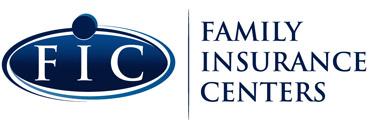3 Common Home Insurance Mistakes to Avoid

Homeowner’s insurance can be confusing, especially if you have trouble understanding the fine details of your policy. It’s no surprise that some homeowners fail to understand exactly what their policy includes.
Unfortunately, you can make certain insurance mistakes that might cost you a lot in the long run. The unexpected can happen. And if you don’t know what your policy does or doesn’t cover, you might be in for an unpleasant surprise.
If you can learn from the following mistakes, you may be able to adjust your coverage before something bad happens. And if you’ve already purchased a plan, you could still have a second look at your policy to understand things better.
1. Going for Actual Cash Value Rather Than Replacement Cost
Many homeowners may choose a policy that only covers the actual cash value of possessions in their homes instead of the total replacement cost. Actual cash value will only pay out the “book value” figure of your lost possessions.
The truth is, many of the items you own may depreciate with time. Replacing them is way more expensive than what they might fetch at the time of loss.
For example, if your couch was worth $2,000 when you bought it, its current value might have depreciated to roughly $700. An actual cash value policy will only cover $700. You’d then have to foot the remaining balance by yourself if you intend to replace the couch.
For a replacement cost policy, you will receive a brand new item as a replacement for the lost item. You won’t have to worry about depreciation deductions with this option.
2. Making Assumptions About Your Policy
Many homeowners assume that their policies cover every aspect, even without a confirmation from their insurance agent.
Although most policies include certain types of water damage (faulty appliances and burst pipes), external causes of water damage may not be covered under your policy. The water that might get into your home due to sump pump failure, heavy rainfall, or sewer backups might cause damage to your home that your insurance coverage cannot pay for.
Luckily, you can purchase additional insurance that specifically protects you against water damage if you encounter such challenges. Talk to your agent to understand what your coverage can and can’t do for you before taking on additional coverage. You can go over the options available to you to help decide on what coverage fits you best.
3. Underinsuring Your House
When you compromise on proper coverage for a good deal, you’re likely to regret that decision in the future.
Some homeowners prefer to purchase a policy that meets their minimum mortgage requirements. Or one that only considers their home’s current real estate value. But they don’t account for what it would eventually cost them to rebuild their home and replace possessions if disaster strikes. Such homeowners may not fully understand what they’ve signed up for.
However, rebuilding a home might cost much more than its current value. Construction and labor costs may have seen a sharp increase from when you first built your home. Widespread disaster might also trigger a higher increase in rebuilding costs, some that you may not have thought about.
You should instead purchase enough insurance for better security and assurance. However tempting it is to go with the lowest coverage, what you get after a total loss could be much lower than your home is worth. The right coverage should be enough to cover the costs of replacing your items and rebuilding your home as well without having to put in more of your hard-earned cash.
Reach out to Family Insurance Centers for more information on the right home insurance cover for you.
